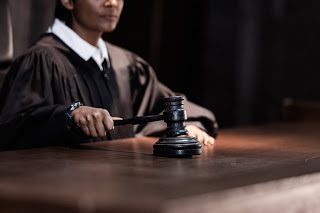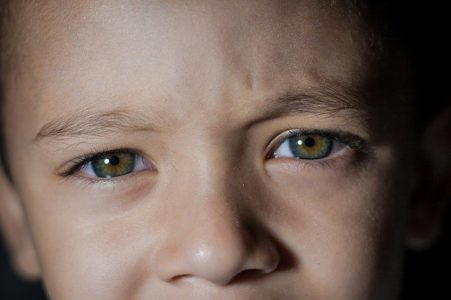Last Updated on April 5, 2024 by Michelle Ball
By Michelle Ball, Sacramento California Expulsion, Special Education, sports/CIF, College, Education and School Attorney/Lawyer for Students since 1995
Many parents envision school expulsion hearings are mini-trials where a student has full rights to object and exclude things, like in regular court. However, public school expulsion hearings, governed by administrative law (the law relating to government agencies), have different rules from traditional courts. There are some parameters for the expulsion process, and what is allowed can be quite confusing to a parent on their own.
What about evidence in expulsion hearing? Here are some basics on school expulsion hearing evidence.

Do regular rules of “evidence” for court trials apply in school expulsion hearings?
No.
Are parents entitled to all evidence the school has against a student before the expulsion hearing?
Parents are entitled to all evidence the school will use at the hearing. Usually the school or district will provide the evidence to the family at the suspension extension meeting, but if not, it can be requested pre-hearing and usually comes in the form on an expulsion packet.
How do I get the school expulsion hearing evidence from the school if it was not given to me?
Simply request it, preferably in writing via letter and/or email.
What evidence is needed to expel a student?
The school should prove the expulsion offense with substantial evidence showing the student actually committed the expellable acts alleged and that the student breached applicable the Education Codes.
What evidence can the school submit at the student’s expulsion hearing?
The school can submit anything they gathered, including statements from students about the allegations, even if a student or witness who gave the statement does not attend the hearing. Schools can also present live, or sometimes remote, witnesses or testimony to support the expulsion allegations.

What is hearsay evidence for purposes of a school expulsion hearing?
In very rudimentary terms, hearsay evidence in school expulsions is generally evidence offered to prove something happened often from a student not directly testifying or who was not an actual witness to what happened. For example, sometimes schools submit statements where students write rumors- the statement and the contents are hearsay. [Please note: hearsay is a highly complicated subject and this is not a complete discussion of hearsay or its exceptions]
What if a student did see something happen, but does not testify at an expulsion hearing? Is the student’s written statement hearsay?
Yes, usually. A written statement, when the student does not present themselves for questioning is typically hearsay. There is an exception when a hearing panel rules that a student would be “subject to an unreasonable risk of harm,” were they to testify and the panel can decide to accept their written statement instead (see California Education Code 48918(i)(3)) and it then will not be considered hearsay.
A statement from an accused person, where they admit they “did it,” is considered an admission and is acceptable under a hearsay exception (see California Evidence Code section 1220).
Can a student be expelled from school based on hearsay alone?
No. This is specifically prohibited in California Education Code section 48918(f)(2).
Why are we talking about hearsay and what does it matter to the student being expelled from school?
It matters because if a student did not admit the allegations, and there was only hearsay at the school expulsion hearing, the expulsion may be overturned on an appeal to the county board of education.
What evidence is presented at most school expulsion hearings?
A school or the district will usually present a packet of information (“expulsion packet”), including written statements, testimony from an administrator (like the vice principal or principal) and may present an eye witness to the alleged wrong. Districts vary in how well they conduct student expulsion hearings and what documentation or evidence they submit.

What evidence can a parent submit at a school expulsion hearing?
Paper evidence, witnesses, character witnesses, letters supporting the student, witness statements, pictures, videos, or any other evidence which is relevant. Parents may also submit a legal brief (paper with the law and facts) and arguments supporting the student’s innocence.
What can a parent say at the school expulsion hearing?
The parent or their attorney or a non-attorney advisor can usually do an opening and closing statement, can make objections, present evidence, witnesses, and can question school witnesses.
Can a Parent be a witness at a school expulsion hearing?
Yes, if the parent saw the act happen, they can testify as a direct witness. If not, a parent may be a character witness.
Can a parent ask a school to help them force witnesses to testify at the expulsion hearing (aka subpoena them)?
Yes. A parent can ask the school board to issue subpoenas to witnesses who actually saw what happened, aka percipient witnesses.
If there is an evidence issue at a school expulsion hearing, who decides?
The person or group overseeing the student’s expulsion hearing, such as the expulsion hearing panel, board of education or hearing officer, should review any questions and make a ruling.
Can a parent record a school expulsion hearing?
Not without permission, which is usually denied. The school district will make an official record, with either a recording or a court reporter.
Student expulsion lawyer Michelle Ball represents students in expulsion hearings, negotiations, appeals and fighting student suspensions. As a discipline attorney in Sacramento California, Michelle Ball assists students across the state in Davis, Redding, Los Angeles, Santa Barbara, Monterey, the Bay Area, Berkeley, Stockton, Elk Grove, Walnut Creek, and many other locations.




